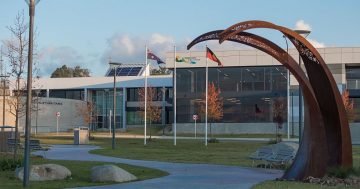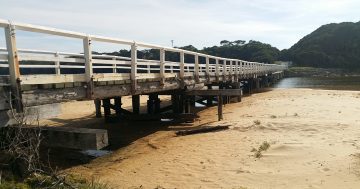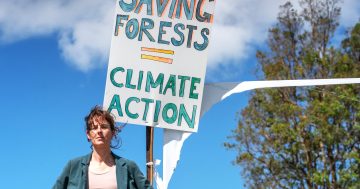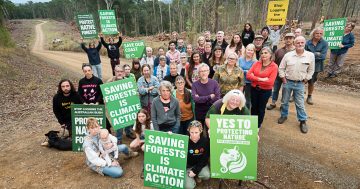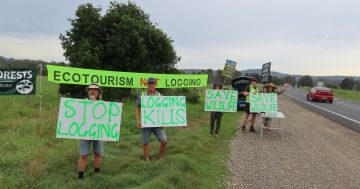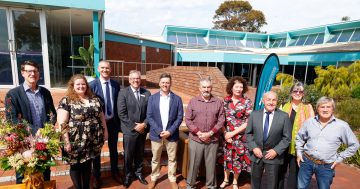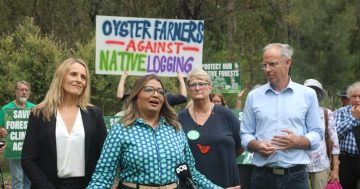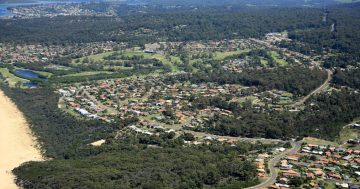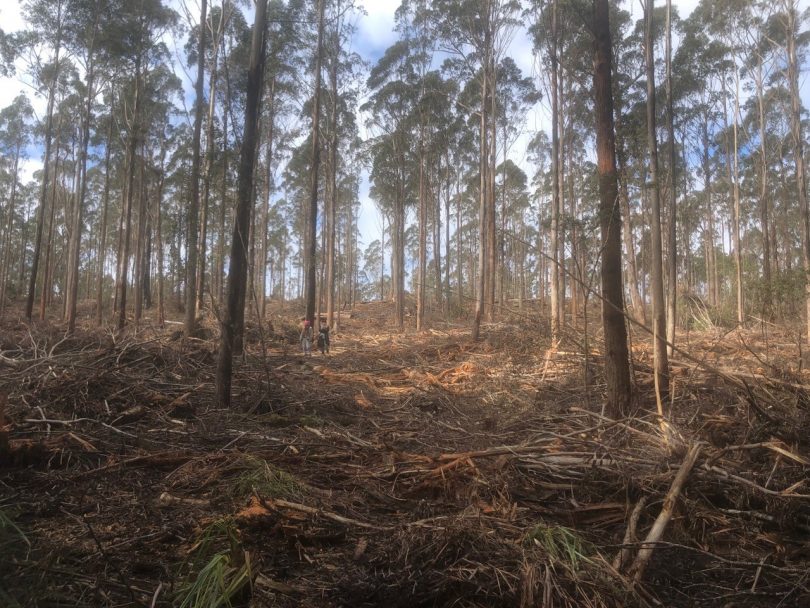
A scene of logging in the Tantawangalo State Forest in 2019. Photo: Peter Day.
Bega Valley Shire Council will investigate a proposal to reduce the “bureaucracy” around allowing native forest logging on private land, despite concerns that the move could allow a “free for all”.
The issue saw an emotional debate between councillors at their meeting on Wednesday (20 February) before only two ultimately voted against the move.
However, councillors were divided when it came to a motion to support the region’s forestry industry in general, with Mayor Russell Fitzpatrick having to use his casting vote to break the deadlock to pass this as well.
The main motion was to hold a workshop for councillors to discuss the logistics around a proposal to allow landowners to have their land logged for forestry without seeking approval from council.
This would apply for land listed as RU2 – Rural Landscape, which council staff said covered about 44,626 hectares in the shire, and landowners would apparently still have to seek approval from Local Land Services.
“All this motion is doing is taking away one level of bureaucracy,” Cr Fitzpatrick said.
He said it was an area where council did not need to have any role and the motion was about giving farmers an opportunity – an opportunity which they might not choose to take up.
“All it allows them to do is go straight to Local Land Services,” the mayor said.
Cr Tony Allen agreed the move was about reducing a level of administration and called it a “long overdue change”.
“The logging industry is totally sustainable. Trees regrow,” he said.
But the Greens’ Deputy Mayor Cathy Griff thought the proposed amendment to Bega Local Environmental Plan 2013 could create a “free for all”.
“This is about individuals making money at the expense of the environment that we live in,” she said.
A public meeting that morning had shown there were incredibly opposing views on the issue and there was no basis to make opinions on the matter when councillors hadn’t read the research, Cr Griff said.
But the only councillors who voted against the motion were Crs Griff and Liz Seckold, which meant it was carried and the workshop will go ahead.
Earlier, the councillors had also debated a motion that wanted council to recognise the role of state forests and the native timber sector in enhancing the health, accessibility and protection of the shire’s forests.
Cr Griff wanted to defer the motion pending a workshop to better inform councillors about the issue, arguing it was not something that should be determined at short notice, nor was it even in the purview of local government.
“I’m really quite amazed the council would consider this is the way we’d do business. It isn’t,” she said.
She argued there were “completely fanciful” employment figures included in the motion, as it claimed the sector provided 2230 employment opportunities on the NSW South Coast, and thought tourists to the area would be “appalled” by the destruction in the local forests.
Cr Griff also said the nearby Eurobodalla and Shoalhaven shires had passed motions stating their opposition to native forest logging for tourism and other reasons.
Labor’s Cr Helen O’Neill said while the timber industry was viable in NSW, it had to be managed well. She agreed with Cr Griff that councillors needed to investigate further before they passed a broad motion.
But Cr Fitzpatrick said council had passed a similar motion in the past and all this was about was reaffirming council’s support for forestry.
He and councillors Tony Allen, Mitchell Nadin and David Porter voted in favour while the remaining four opposed it, which resulted in the mayor needing to use his casting vote to carry the motion.







